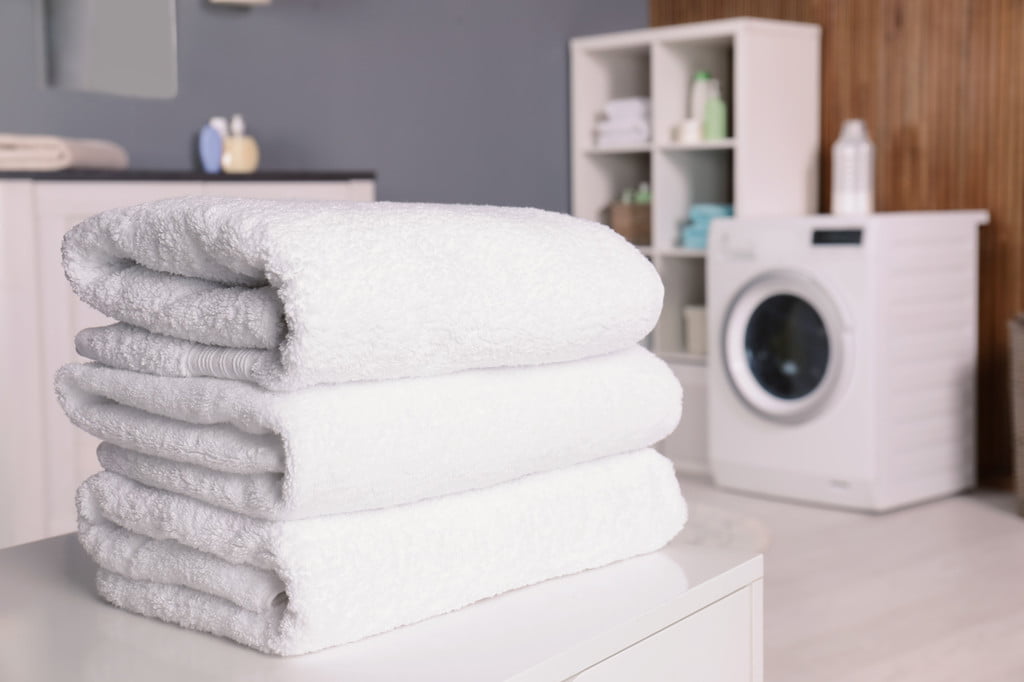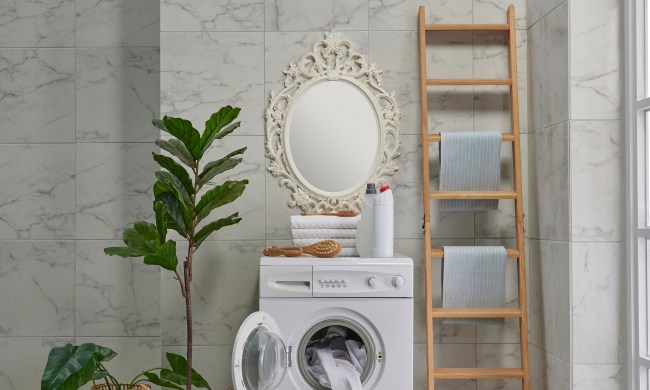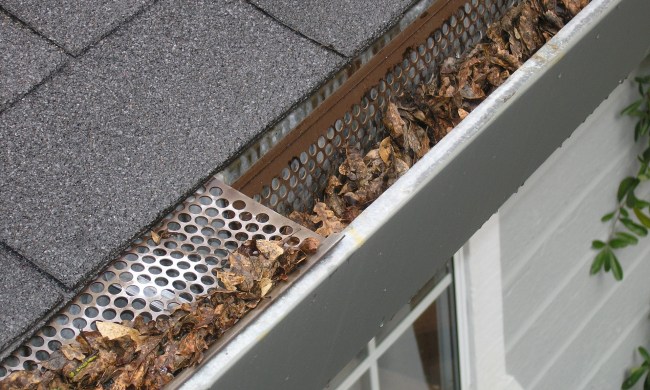Have you ever wondered how often to wash towels? If you’ve been using the same bath towel for a week (or more), it might be overdue for a wash. We use towels daily to dry off after a shower, wipe our hands, or clean up spills, but they can also trap moisture, bacteria, and even dead skin cells. Understanding how often to wash different types of towels ensures they stay fresh, hygienic, and soft for as long as possible. It can also save your plush, luxury towels from damage.
How often to wash towels

The frequency of washing towels depends on their use and how much moisture they retain. Below are some general guidelines for different types of towels:
- Bath towels: Ideally, it’s best to wash bath towels after every three to four uses. Since they absorb moisture and are often stored in humid bathrooms, they can develop odors and bacteria quickly.
- Hand towels: Since they’re used multiple times a day and often by multiple people, hand towels should be washed every two days to prevent the spread of germs.
- Washcloths: These should be washed after every use since they directly scrub the skin and collect dirt, oils, and bacteria.
- Kitchen towels: Dish towels and kitchen hand towels should be laundered every one to two days since they come into contact with food, spills, and various surfaces that can harbor bacteria.
By following these guidelines, you can keep your towels clean, fresh, and safe for everyday use.
How many times can you reuse a towel before washing it?

The number of times you can reuse a towel before washing it depends on the type of towel and how it’s used.
Bath towels
Bath towels can typically be reused three to four times before they need a wash, as long as they’re properly hung to dry between uses. However, if a towel starts to develop an odor or feels damp even when dry, it should be laundered immediately.
Hand and kitchen towels
Hand towels and kitchen towels tend to collect bacteria more quickly. They can be used multiple times but need to be washed more frequently since they’re used on our hands or near our food. This will help prevent cross contamination.
Washcloths
Washcloths, which are used to cleanse the skin, should not be reused without washing. Since they remove dirt, oil, and dead skin cells, using them multiple times without washing can lead to bacteria buildup and even skin irritation.
Tips for keeping towels fresh

Proper towel care goes beyond regular washing. Here are some tips to keep your towels fresh and extend their lifespan between washes:
- Always hang towels to dry properly: Avoid leaving towels in a damp pile. Instead, hang them on a towel rack where they can air dry completely between uses.
- Use white vinegar in the wash: Every few washes, add a cup of white vinegar instead of fabric softener to remove buildup and keep towels soft and absorbent.
- Wash towels separately from other laundry: Towels should be washed on their own to prevent lint from transferring to clothes and to ensure they get properly cleaned.
- Avoid fabric softener: While it might make towels feel softer, fabric softener creates a residue that reduces absorbency over time.
- Shake towels before drying: Giving your towels a good shake before putting them in the dryer helps fluff the fibers and keep them plush.
- Ensure towels are fully dry before folding: Storing slightly damp towels can lead to musty odors and mildew growth.
By following these simple care tips, you can keep your towels fresh, fluffy, and hygienic for much longer.
Knowing how often to wash towels is essential for maintaining hygiene and keeping them in good condition. Proper care, such as hanging towels to dry and avoiding fabric softener, helps extend their lifespan and keeps them fresh. By sticking to a regular washing schedule and following simple towel care tips, you can ensure your towels stay clean, absorbent, and ready for everyday use.




